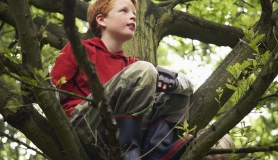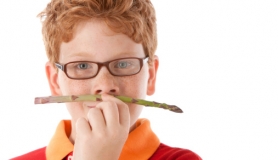The charity National Youth Agency set up the annual National Youth Week (from 5-11 Nov) in 1993. Its aim is to provide young people, youth workers and youth-focussed organisations with the opportunity to showcase the impact youth work has both locally and nationally.
Youth work takes place in a wide range of places, from authority-run clubs and projects to independent youth centres to youth theatres. The aim is education for life through building relationships with young people and enabling them to be involved in community-building activities. The benefits are manifold: self-confidence, self-esteem, new skills, friendship, moral and spiritual development, and a chance to influence their communities and have fun. Three out of five young people take part in youth work at some time during their formative years.
Youth workers provide support for young people’s education and offer information and advice on how to stay healthy, to combat discrimination, to manage relationships and counselling for when it gets too much. The real point of the week is to create a publicity focus for the quality youth work that goes on all year round.
This year, National Youth Week has teamed up with the Commonwealth to cover 54 countries, and the theme is Connecting Cultures. The National Youth Agency offers these ideas for what your youth centre or group can do this National Youth Work Week:
1. Celebrate the Connecting Cultures Plan a global youth work project that highlights links between communities around the world. Possibilities are endless – from project work such as transforming your building/tuckshop/canteen into a Fair Trade venue, to a simple multi-cultural food evening that tries to offer food from as many communities within your project or local area as you can. The website of the Development Education Association has useful information.
2. Think creatively about the Connecting Cultures theme. Culture is wider than ethnicity or nationality. What groups in your community have a distinct culture to highlight? An inter-generational project can combine something really positive for old and young people with a good focus on how communities change and adapt over time.
3. Art projects can be great for celebrations like this, not only do young people get to experience a powerful means of expression and communication, but you’ve usually got something eye or ear-catching to offer audiences (including the media) at the end of it. If you’ve not got the talents in-house, track down an arts organisation that’s willing to work with you. Think about how you would like to use the theme and then create an artwork or a mural, stage a theatre, music or dance event, organise a video or photography competition and put the results on display during the week. Perhaps team up with a local gallery to arrange an exhibition.
4. Don’t feel you have to set up something really major – you could always just ask young people to create a display – “what our youth centre means to us” – or maybe something more pointed about perceptions of young people or the Connecting Communities theme. Think about places where the people you want to influence will see it – the Town Hall? Supermarket foyer? Hospital? Football club car park on match day?
5. Have an open day or evening at the centre and invite everyone – families, your project’s neighbours, councillors, local businesses. Keep it relatively short and focused with a natural highlight towards the end of the event so people know what their likely time commitment is. This could be a performance, an award ceremony with certificates (you can use the Youth Work Week template on the NYA site) or anything that focuses on young people’s achievements.
6. Fundraise – 2012 has an evocative ring to it, so why not use that figure? Set a target to raise £2012 for yourselves or some other cause – or maybe 2012 10p pieces. Get sponsorship to swim 2012 metres, pick up 2012 pieces of litter from a local “grot spot”. If you do decide to fundraise for a charity – make the most of it in educational terms – get young people to research charities in the field they are looking at. Build a relationship with a charity and consider getting in someone to introduce their work to your group.
7. Hold a recruitment drive for part-time and volunteer workers – Approach your local newspaper and radio stations with the idea and provide them with ‘a day in the life’ feature of an existing part-time worker explaining why they do it and what they get out of it. Give an award to your oldest, longest-serving or most dedicated volunteer.
8. Set up a stunt – You’ll know what works best and how to utilise the skills of young people locally. It might be an abseil down the tallest building in the area or a sleep out outside the town hall to highlight the plight of homeless young people. Don’t let the stunt get in the way of the message though – that this is about celebrating youth work.
9. Produce a youth magazine to highlight what’s important to you – Doing this online would make it low cost – especially if you’ve got IT savvy young people. Get young people to interview community leaders and work with local organisations and businesses to support and help with the production.
10. Revamp your social media presence – Create a web page if you’ve not got one already but set up a group of young people to research and report on what young people think is the best way to keep in touch with project members and to communicate with the wider community. Do young people read emails? Or is it all texts and tweets? Are they on Facebook or has the party moved somewhere else?
Whatever you do, don’t forget to tell your local newspaper and radio station and work with them to help celebrate youth work. And don’t forget to tell us at the NYA too – we will be posting the most creative celebrations on our website and Facebook page. Send details of your event to [email protected]
(edited version – to read this in full, go to the National Youth Agency website)







